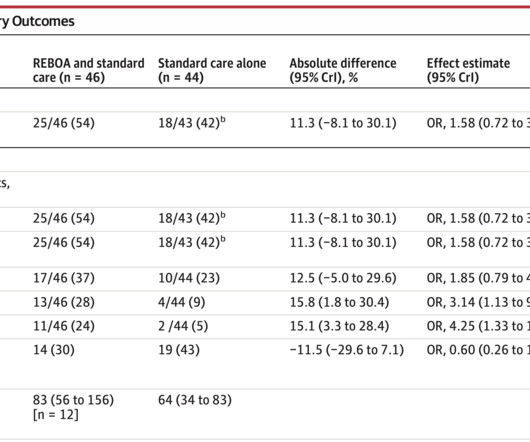Tourniquets are back
ETM Course
MAY 3, 2017
Based on reasonable quality data from recent military (and some civilian) studies, tourniquet use for the arrest of life-threatening haemorrhage from exsanguinating limb trauma is now being advocated. This post provides some general and specific information and practical tips on tourniquet use. When should I use a tourniquet?













Let's personalize your content